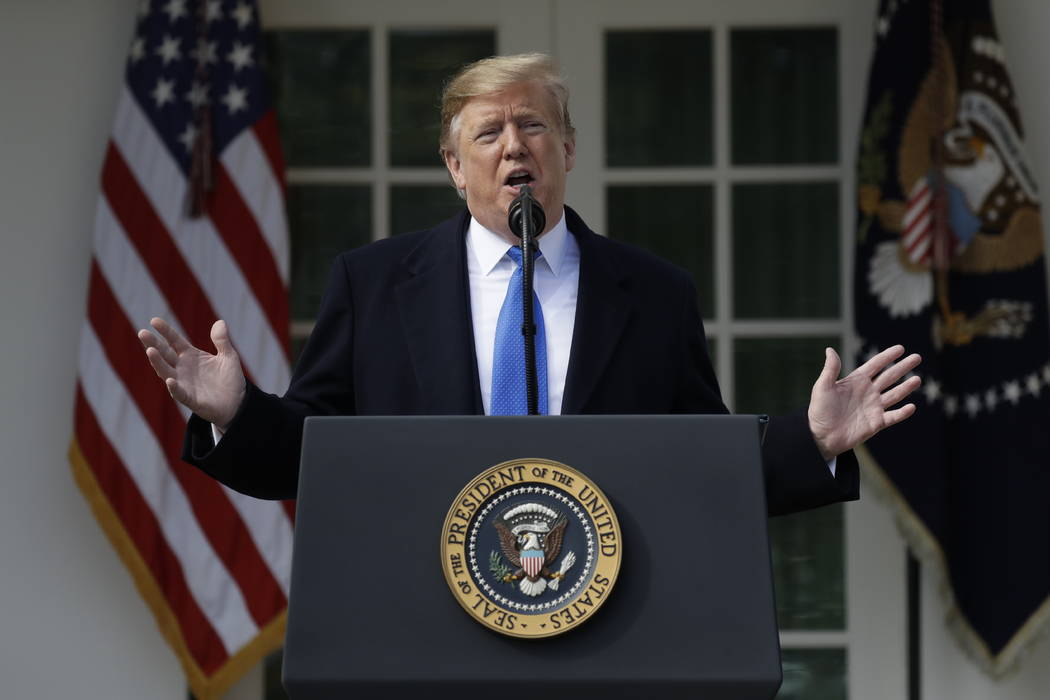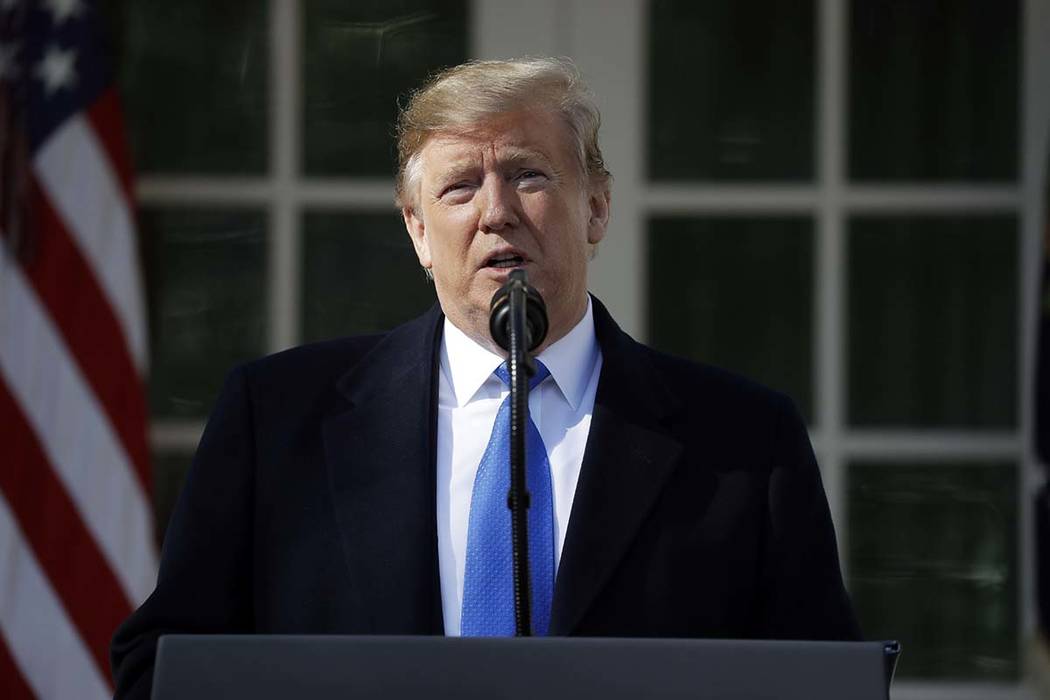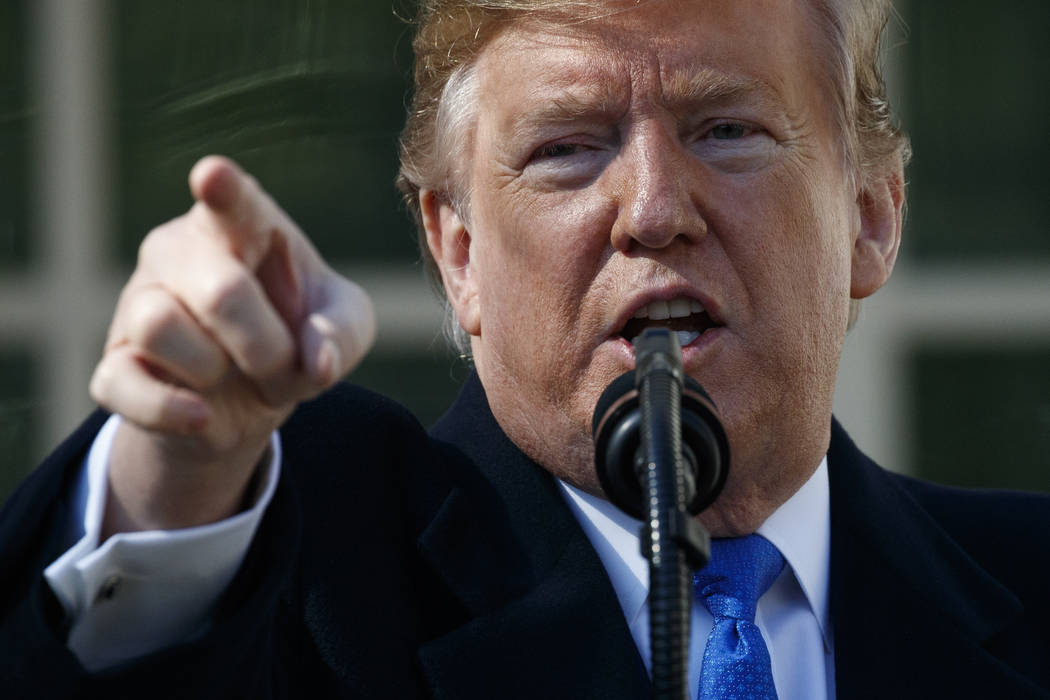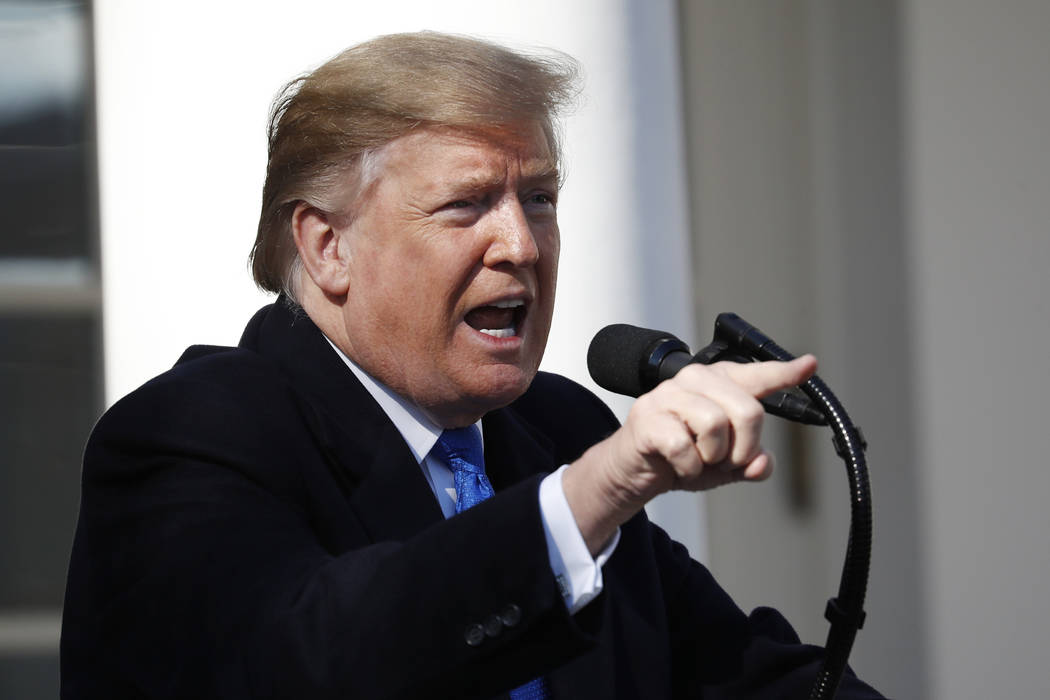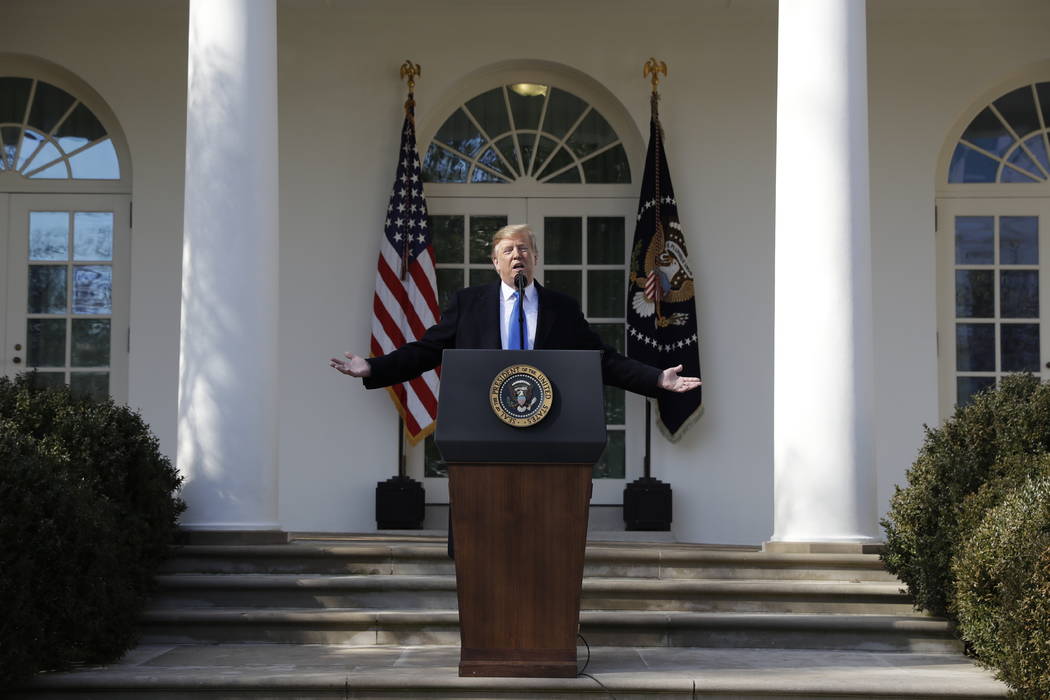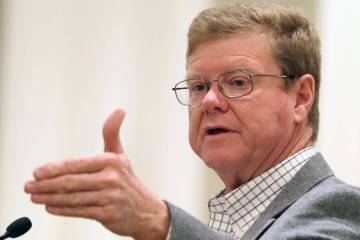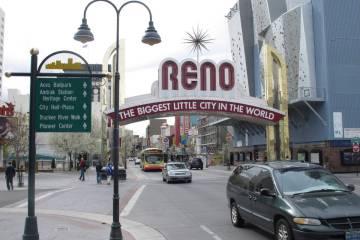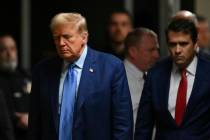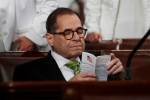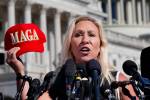Trump declares national emergency to free up funds for border wall
WASHINGTON — President Donald Trump signed a sprawling spending package to avert another government shutdown Friday and declared a national emergency to fund additional construction for his signature wall at the Southwest border.
“We’re gonna build a lot of wall,” Trump said in the Rose Garden Friday morning, as he painted a dark picture of the border as “a major entry point for criminals, gang members, and illicit narcotics.”
Afterward the White House sent out a release that declared “Border Security Victory” for a package that provides $1.375 billion for 55 miles of border barrier — significantly less than the $5.7 billion Trump wanted for a border wall.
Trump’s emergency declaration instantly transformed a contentious policy fight into a dispute over the separation of powers enshrined in the Constitution, ensuring that the president and Democrats will continue fighting over the border wall in Congress, the courts and on the campaign trail.
Even the administration expects Trump’s maneuver to be held up as legal challenges make their way through federal courts.
House Speaker Nancy Pelosi called the emergency declaration “plainly a power grab by a disappointed President, who has gone outside the bounds of the law to try to get what he failed to achieve in the constitutional legislative process.”
On Thursday, the one-year anniversary of the Parkland school shooting that left 17 students and faculty dead, Pelosi told reporters that if Trump could declare a national emergency over the border, a future Democratic president could declare a national emergency over gun violence.
But Acting Chief of Staff Mick Mulvaney told reporters the move “creates zero precedent. This is authority given to the president in law already. It’s not as if he just didn’t get what he wanted so he’s waving a magic wand and taking a bunch of money.”
Questions about constitutionality
Some GOP lawmakers supported Trump while others voiced concerns about the constitutionality of the move.
Sen. Lamar Alexander, R-Tenn., called Trump’s declaration “inconsistent with the U.S. Constitution because, after the American Revolution against a King, our founders chose not to create a chief executive with the power to tax the people and spend their money any way he chooses. The Constitution gives that authority exclusively to a Congress elected by the people.”
But Senate Majority Leader Mitch McConnell, who reportedly had tried to dissuade Trump from declaring a national emergency, defended Trump’s decision as a “predictable and understandable consequence of Democrats’ decision to put partisan obstruction ahead of the national interest.”
Mulvaney said the administration had tried working with Congress without success.
“We’ve been through a shutdown,” he said. “We’ve been through three weeks of allowing Congress to try and work their will, and they’re simply incapable for providing the amount of money necessary, in the president’s eyes, to address the current situation at the border.”
By declaring a national emergency, the White House disclosed, the administration is able to divert some $8 billion that could go to build some 234 miles of bollard wall at the border.
Mulvaney said that $600 million for the wall would come from a Treasury Forfeiture Fund and roughly $6.1 billion from Defense Department drug interdiction and construction funds.
No funds, Mulvaney said, would be siphoned from disaster relief for Puerto Rico or Texas.
Lawsuits expected
In the Rose Garden, Trump admitted, “I could do the wall over a longer period of time. I didn’t need to do this, but I’d rather do it much faster.”
The American Civil Liberties Union used that statement to emphasize why it would file a lawsuit against the move next week.
“By the president’s very own admission in the Rose Garden, there is no national emergency,” Executive Director Anthony Romero said in a statement that called the move a “patently illegal power grab” that “flouts the checks and balances that are hallmarks of our democracy.”
Trump had foreseen the legal battles. In a sing-song voice, the president recited how he saw the controversy playing out. “And we will have a national emergency, and then we will be sued, and they will sue us in the Ninth Circuit,” Trump said, referring to the controversial western federal appellate circuit, before he predicted a win in the U.S. Supreme Court.
“So I think what will happen is, sadly, we’ll be sued, and sadly, it’ll go through a process. And, happily, we’ll win — I think,” he said.
Asked if the emergency declaration would affect Nevada, a senior administration official replied that at this time there is no list of military construction projects that would be affected.
“Criteria will focus on lower priority, unawarded projects – we’re committed to not harming lethality or readiness,” the official said in a statement.
Trump defended his use of an emergency declaration, saying other presidents had done the same. Other presidents have used emergency powers, but not to pay for projects that Congress wouldn’t support.
When President Barack Obama’s administration issued an executive action protecting some four million undocumented immigrants from deportation in November 2014, Trump protested on Twitter, “’Repubs must not allow Pres Obama to subvert the Constitution of the US for his own benefit & because he is unable to negotiate w/ Congress.”
Asked about his 2014 comments, Trump responded that his declaration is different because, “I went through Congress. I made a deal. I got almost $1.4 billion when I wasn’t supposed to get $1 – not $1.”
Contact Debra J. Saunders at dsaunders@reviewjournal.com or 202-662-7391. Follow @DebraJSaunders on Twitter. The Associated Press contributed to this report.
President @realDonaldTrump signs the Declaration for a National Emergency to address the national security and humanitarian crisis at the Southern Border. pic.twitter.com/0bUhudtwvS
— Sarah Sanders (@PressSec) February 15, 2019



